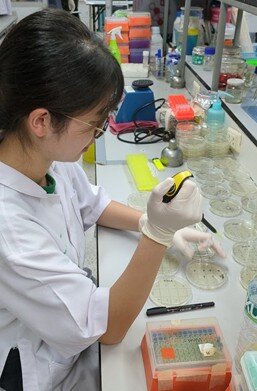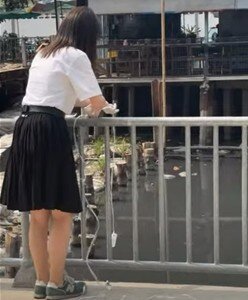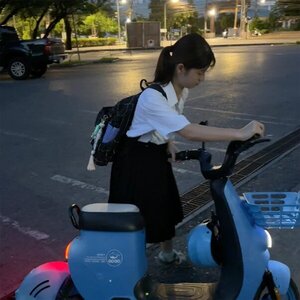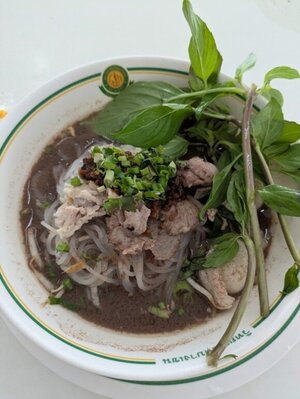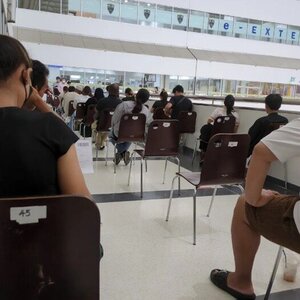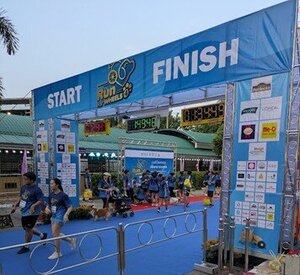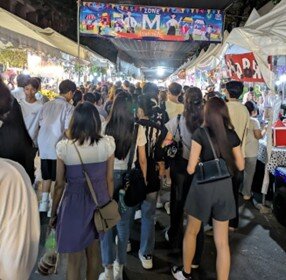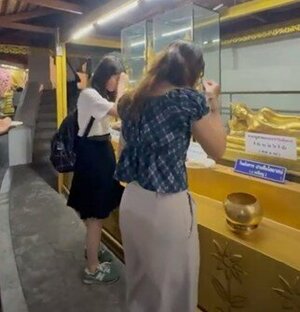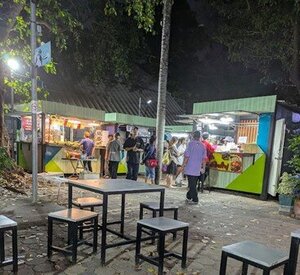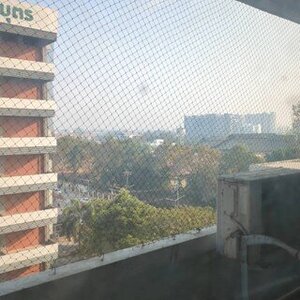OUR OQEANOUS STUDENTS
- HOME
- OUR OQEANOUS STUDENTS
- IJP
- IJP Report (KU Jan - May 2025)
International Joint Program
IJP Report (KU Jan - May 2025)
2025.06.24
Graduate School of Marine Science and Technology
Course of Food Science and Technology
Second Year of Master's Program
N. A.
【The reasons why I decided to study abroad】
When I was a bachelor student, I worked as an internship at food bank where I could meet many foreigners and people who have experience to live overseas. Also, I interacted with many international students from various countries in TUMSAT international club which motivated me to go to study abroad. There were several reasons why I wanted to study abroad: Broaden my perspectives, learn under the different education systems in other countries, experience what it's like to be a minority in a foreign country, and learn to engage in discussions equally with students who have different perspectives. What is more, I found joy in cross-cultural exchange. At the information session for the "Oqeanous Plus" program after entering graduate school, I asked the student who joined this program whether I should study abroad as a student or wait until I could work abroad as a professional. His confident reply, "Why not do both?" gave me the final push to make the decision to go abroad.
【Preparing for Study Abroad】
To prepare for the exchange, I asked my advisor at my home university for help in finding a host advisor, and it turned out that my advisor had a connection with Kasetsart University (KU) in Thailand. Thanks to that, I was accepted there. At KU, most classes are taught in Thai, so my course options were limited. I discussed my academic interests with my advisor, who helped me to join English-taught classes that aligned with my goals. Course and teaching styles vary across faculties, so I recommend consulting with your advisor at host university directly. To improve my language skills, I tried to read academic papers in English, not to rely on translation into my mother language as much as possible. I also took every opportunity to use English during presentations in the class and seminars to build up the knowledge on technical terms I would need in a research setting.
【Classes, Research, and Lab Life】
For my research, I worked on isolating bacteriophages and determining their host range. Although this was different from my research theme in Japan, I read previous studies and asked questions to lab members to progress my project. It was very fun for me to explore drainage canals all over Bangkok to collect dirty sewage samples! I spent weekdays from 9 AM to 6 PM in the lab, not only working on my own project from planning to data analysis but also helping with other experiments. Thanks to my lab members, my lab work in KU was very fulfilling. As for classes, I took two courses. One was Quality assurance and safety management for Agro-industrial project with third-year undergraduates from the international program, and the other was a seminar with master's and PhD students in the department of Biotechnology. Both courses have lectures followed by group presentations. I was impressed by how quickly KU students created their slides and how well they presented. We even worked with students from India and France online to develop a HACCP plan, which was a fun and unique experience. The exams focused not on memorization, but on applying what we had learned. In the seminar, students usually presented the progress of their thesis research. I presented journal papers related to my project. The other students' topics, such as biomass, were quite far from my area of expertise, so it was difficult to understand at first. But as the sessions went on, I gradually began to follow the discussions and gained exposure to new academic fields.
【Daily Life: Dorms and Food】
In the dormitory, I used a double room by myself, which was very spacious and comfortable. For meals, I usually ate at the university cafeteria or food stalls near the dormitory from morning to night. Since I enjoy spicy food, I had fun discovering new Thai dishes with the help of local friends. Besides the regular cafeterias, there were weekly markets on campus where I could enjoy a wide variety of affordable foods, truly a food lover's paradise :)
【Cultural Differences and Personal Growth】
One major cultural difference I noticed was the Thai are tolerant of failure compared to Japanese. I tend to feel discouraged easily when experiments fail, but my Thai lab mates would cheer me up, saying "Mai pen rai" (similar to "No worries" in English), encouraging me to stay positive and try again. Thanks to this, I was able to tackle new research themes without being overly afraid of failure.
【Challenges and Highlights】
At first, making friends was difficult. Since I spent most of my time in the lab, I didn't have many chances to meet people outside of it. But over time, I started making friends through casual interactions--being approached at food stalls or eating at shared spaces in my dorm. Eventually, I built connections regardless of age, gender, or nationality. I experienced real culture shock, learning about vastly different customs and values from friends from not only Thailand, but also the Middle East, and Europe. It also made me realize how much my own way of thinking is shaped both positively and negatively by Japanese culture.
【Message to Future Students】
Balancing study abroad with job hunting and projects in your country can be challenging, and you might hesitate to take the leap. However, studying abroad, even if you delay job-hunting timeline, gave me the clarity to pursue a future where I could work overseas. It helped me seriously think about my career path with a global perspective. Doing research abroad allows you to connect more deeply with local professors and students than regular classes alone can. Research in a foreign lab brought me new insights and discoveries. The program is well-supported by dedicated coordinators, making it a realistic option even with the busy schedule of graduate school. You won't regret it, so grab your chance!
Fig1: Experiment in the lab Fig2: Sampling at the canal. I went around Bangkok to collect sewage.
Fig3: Means of transportation. There are shared electric bikes, Fig4: My favorite menu in cafeteria: Rice noodles with pork blood soup called kuay teow.
scooters and bus called "Talai" which are convenient. We eat together with Thai basil.
Fig5: Visa extension at Thai immigration office. Thai immigration system Fig6: Running competition in universities. My hobby is running so I joined running
is complicated difficult to understand which you should be careful. competition around Thailand. King's wife also joined this competition.
We went to the office at 5am and finished at 2pm!
Fig7: Kaset fair. It's a very big festival having many stalls around Fig8: Merit at temple on Buddhism holiday. I felt the effect of
the university which continues for as long as 9 days. Buddhism culture in daily life in Thaiand compared to in Japan.
Thai people love events and we have many events and festivals every week.
Fig9: Night market in the university. We have various kinds of food Fig10: PM2.5 from laboratory's window. The air pollution
stands which make me fun. Eat outside with mosquitoes. was awful, especially at the end of January. The people who
have respiratory disease should be careful.

